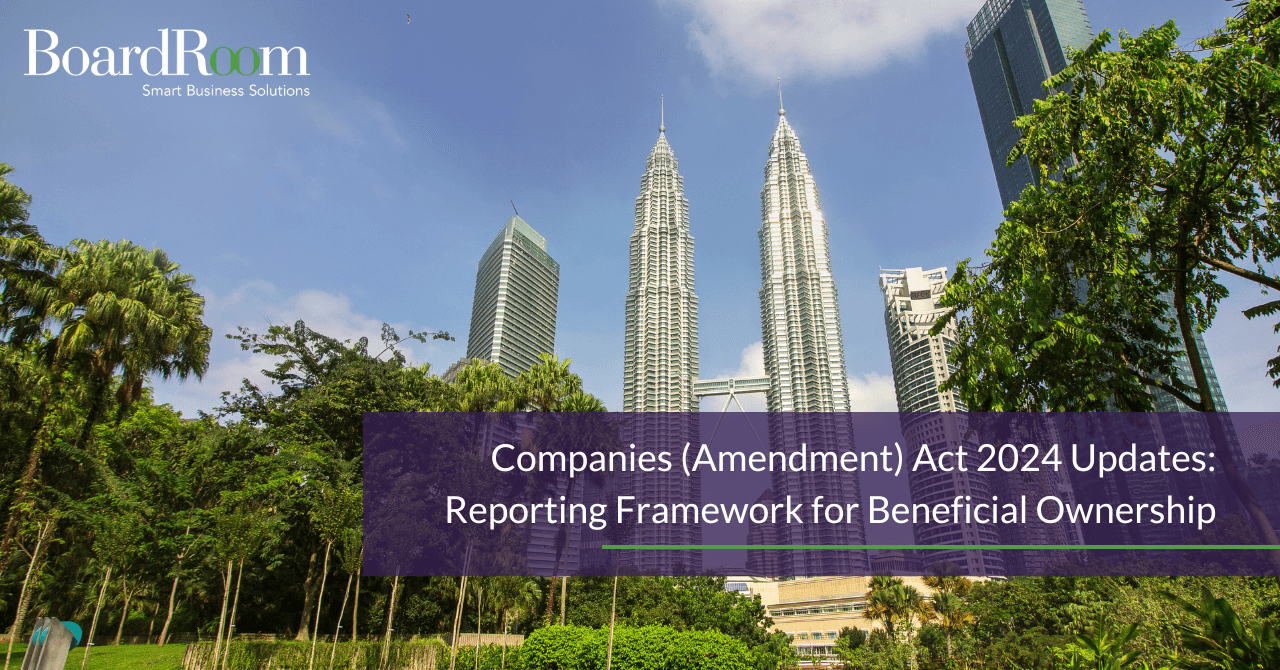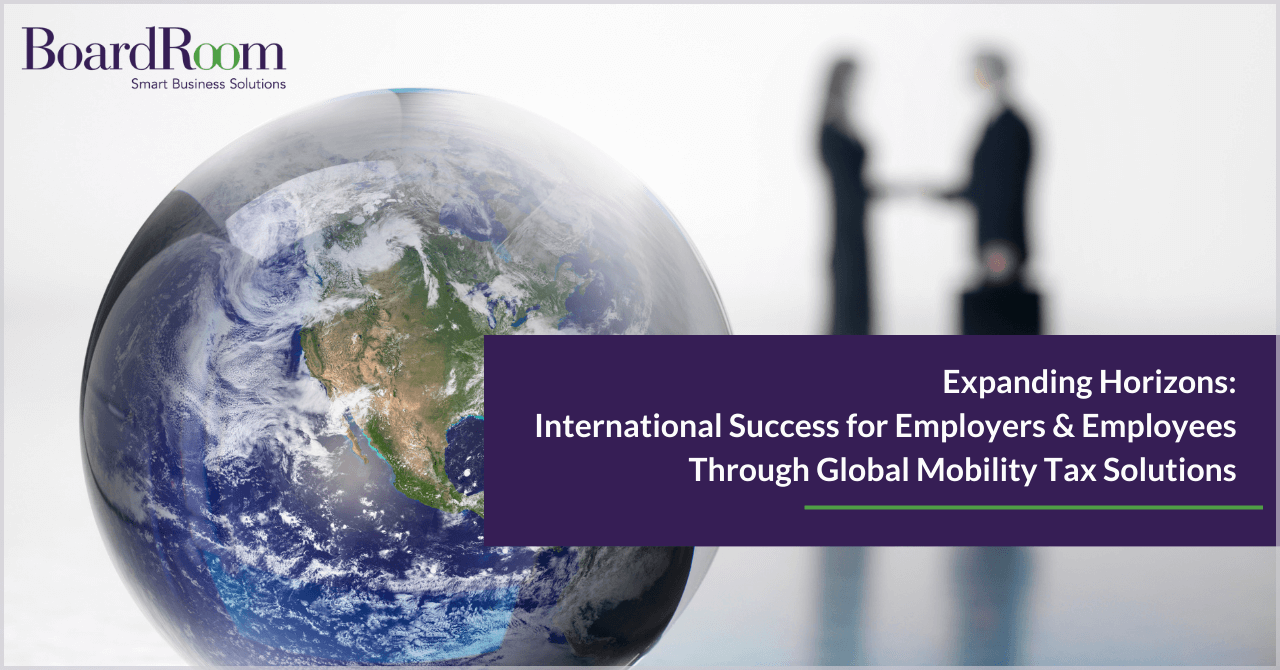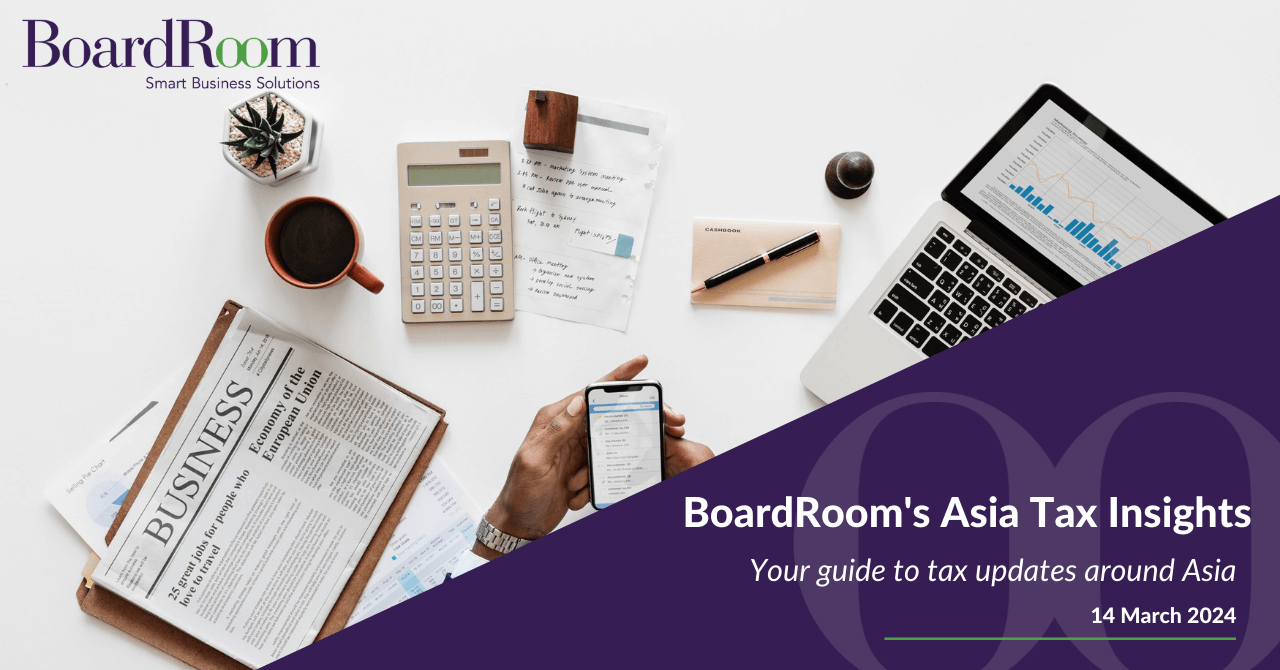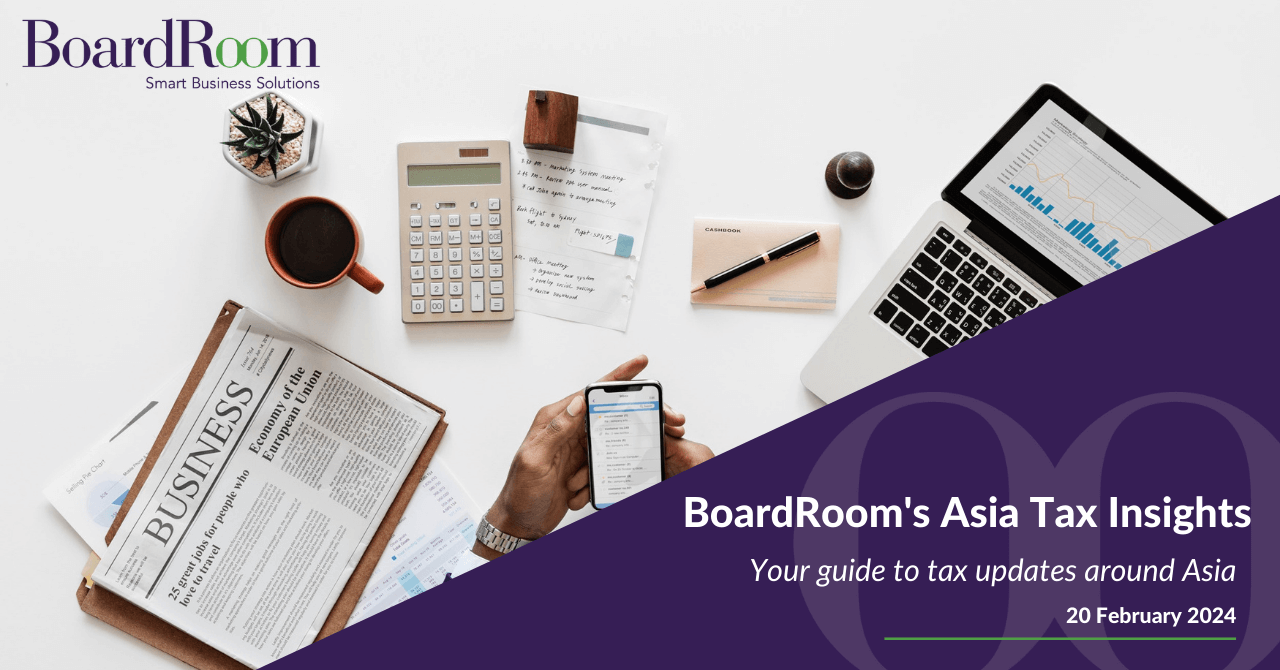| |||||||
| |||||||
| |||||||
Author: boardroomsuperadmin
Companies (Amendment) Act 2024 Updates: Reporting Framework for Beneficial Ownership
Expanding Horizons: International Success Through Global Mobility Tax Solutions
Expanding Horizons: International Success Through Global Mobility Tax Solutions
| ||||||||||||||||||||||||||||||||||
| ||||||||||||||||||||||||||||||||||
|
Low-Carbon and Sustainable Future: How Governments are helping APAC Businesses Transition

Low-Carbon and Sustainable Future: How Governments are helping APAC Businesses Transition
| ||||||||||||||||||||||||||||||||||||||
| ||||||||||||||||||||||||||||||||||||||
|
Recent SG and HK Budgets Commentaries, MY’s Recent SST Rate Increase, & CN’s Tax Filing Season for Individuals
Recent SG and HK Budgets Commentaries, MY’s Recent SST Rate Increase, & CN’s Tax Filing Season for Individuals
| |||||||
| |||||||
| |||||||
| |||||||
| |||||||
| |||||||
| |||||||
| |||||||
|
Sustainable Finance & ESG Reporting: Transformative Steps Taken in APAC

Sustainable Finance & ESG Reporting: Transformative Steps Taken in APAC
| |||||||||||||||||||||||||||||||||||||||
| |||||||||||||||||||||||||||||||||||||||
|
Environmental, social, governance: why it’s essential for SMEs

Environmental, social, governance: why it’s essential for SMEs
Environmental, social and governance (ESG) issues are taking centre stage in Singapore’s business landscape, propelled by a global push towards climate change mitigation, with governments worldwide committing to net-zero targets. This shift has placed increased pressure on businesses to adopt responsible practices, emphasising social equity, transparency and accountability. Furthermore, evolving regulations aimed at enhancing safety and legitimacy within the business environment underscore the critical importance of ESG engagement for companies of all sizes.
It’s not just large corporations that are expected to embed ESG principles in their business operations. In Singapore, small and medium-sized enterprises contribute to 48 per cent of Singapore’s GDP and employ 71 per cent of the workforce, highlighting the role SMEs have in driving sustainable and ethical business practices that contribute positively to the overall health of the economy. As such, SME owners and business leaders are pivotal in shaping a more sustainable, equitable and responsible business future.
In this article, we explore what environmental, social and governance is and why implementing robust ESG practices and processes is not just critical but a strategic advantage for SMEs. We also uncover related opportunities for organisations and provide insights on where business owners and leaders can find the necessary support to implement these ESG practices and policies.
Understanding environmental, social and governance and its relevance to SMEs
Environmental, social and governance is a set of practices adopted by companies to guide how they should conduct business ethically and sustainably. At a broad level, ESG covers the following elements:
- Environmental responsibility focuses on a company’s impact on nature. For example, a small enterprise could adopt energy-efficient operations, reducing both environmental impact and operational costs.
- Social accountability measures how a company manages relationships with employees, communities and suppliers. For SMEs, this could involve creating inclusive workplace policies, engaging in community development projects or ensuring fair trade practices with suppliers.
- Governance concerns practices around a company’s leadership, ethics and transparency. Good governance in SMEs could include developing transparent reporting systems to build stakeholder trust.
Recognising that there is no ‘one size fits all’ approach to integrating ESG practices into business strategy and operations is crucial, as implementation will vary significantly across industries. For example, professional services firms may find greater leverage and opportunities for impact within social and governance, while a consumer goods manufacturer may prioritise environmental and social aspects more heavily.
Why do ESG and sustainability matter?
ESG is a response to a range of concerns, including climate change, rising social inequality and the changing nature of economies.
Investors and stakeholders are increasingly taking ESG into account in their decision-making. Society, customers and clients also expect the companies they interact with to be environmentally and socially responsible. Companies that have robust ESG strategies to manage risks can meet these expectations and compete successfully and strongly in the market.
In Singapore, implementing robust ESG practices offers SMEs the opportunity to differentiate themselves from their competition, attracting more investment, appealing to a larger customer base and ensuring long-term success.
For SMEs eyeing European markets, showcasing solid ESG practices is vital. Europe’s strict corporate social responsibility and sustainability regulations dictate that businesses adopt and visibly demonstrate their ESG commitment.
The Singapore Stock Exchange weighs in
In compliance with the Task Force on Climate-related Financial Disclosures (TCFD) recommendations, the Singapore Exchange (SGX) requires all issuers, including the many SMEs listed, to incorporate climate-related reporting in their sustainability reports. This requirement means companies will have to report on their social and environmental impacts and performance.
The date from which companies have to comply with this mandatory reporting depends on the relevant industry. For example, those in financial services, energy and agriculture are required to report under the TCFD framework from the financial year 2023. Building and transport industries will be required to report from 2024.

Challenges and opportunities of ESG adoption
There’s no doubt that ESG is a priority for growing businesses and SMEs of all sizes, but implementing new policies and procedures into business operations can also increase pressure on owners, managers and staff. For small businesses particularly, implementing sustainability practices can be expensive. Busy small business owners, absorbed in the day-to-day running of their business, may not have the time to gain the knowledge needed to implement new practices effectively and give their employees the skills they need to focus on ESG issues.
Although ESG strategies can potentially yield long-term financial benefits, the immediate challenge for many SMEs lies in maintaining profitability in the short term. Balancing ESG objectives with business growth can be daunting, especially when faced with limited access to technical know-how, which stops many SMEs from even trying.
However, integrating ESG into everyday business practices does not have to be overwhelming. Beginning with small, manageable actions can set the foundation and lead to effective long-term change.
Some examples include:
- Adopting energy-efficient practices, starting with something as simple as switching to energy-efficient light bulbs.
- Seeking financial support from government bodies and initiatives designed to support businesses implementing ESG practices.
- Forming partnerships with multinational companies, other SMEs and non-profit organisations to increase ESG knowledge and understanding through collaborative forums.
- Engaging with a service provider experienced in facilitating ESG integration, to guide and support your business along this path.
Tina Thomas, Head of Environmental, Social, and Governance (ESG) at BoardRoom Group, highlighted, “Small and medium-sized enterprises often lack the comprehensive knowledge required for initiating and executing effective ESG strategies. Additionally, they may encounter significant resource limitations. Nevertheless, this is precisely the juncture at which our expertise becomes invaluable. The ESG team at BoardRoom is adept at managing these processes efficiently and in a cost-effective manner, offering a seamless solution for businesses aiming to enhance their sustainability practices.”

The benefits of a robust ESG strategy
These challenges shouldn’t stop SMEs from exploring the benefits of ESG adoption for cost savings, improved efficiency and risk reduction.
Here, we take a look at some of the benefits:
- increased cost savings from ESG policies, such as a reduction in water and energy usage;
- ESG risks and opportunities can be easily identified if supply chain processes are streamlined;
- reduction in waste and the costs associated with waste management;
- reduction in the risk of regulatory fines due to non-compliance;
- an increase in shareholder value and attracting increased investment;
- appealing to a broader range of potential customers;
- an increase in employee morale, efficiency and health and safety outcomes as a result of prioritising employee wellbeing;
- an ability to attract and retain talent and build a stronger employee brand;
- access to new markets;
- access to tax incentives and government grants; and
- differentiation, which can offer many SMEs a competitive advantage.
Clients, customers, investors and regulators now expect businesses of all sizes to reduce their harmful impacts on the environment and people while increasing their resilience to the effects of climate change.
SMEs with ESG cost-saving and other strategies in place that align with their business purpose are much better placed to adapt and meet the challenges of the future while capitalising on opportunities today.

Practical steps towards ESG integration
Integrating ESG into business practices, strategies and goals can be straightforward and varied based on the individual business. A business could initially take several broad steps; however, it’s crucial to define your company’s ESG goals from the outset clearly. This involves engaging stakeholders and establishing regular monitoring to identify areas for improvement.
Tina adds that a good way to start weaving ESG into day-to-day operations is by collecting and analysing data on the performance of the business. She says, “Step one is making sure there’s a process in place where you collect data on a regular basis, perhaps quarterly. Then, assess the data to expose trends, and set ESG KPIs against the data.”
Other key steps to consider include the following:
Where to find support
The Government of Singapore offers a range of incentives and grants to help SMEs adopt ESG best practices. If you’re looking for ESG grants in Singapore or need guidance on where to start, here are some helpful resources:
- Enterprise Singapore’s Enterprise Development Grant (EDG) helps SMEs develop projects to upgrade and innovate their businesses, explore opportunities for growth and expand internationally. Additionally, SMEs can engage with a Registered Management Consultant like Tina for support with integrating sustainability into their business.
- The Enterprise Sustainability Programme (ESP) supports companies in Singapore to learn about and adopt sustainable, green practices.
- The Productivity Solutions Grant (PSG) gives SMEs a financial boost to adopt technical solutions to improve their productivity.
- The Energy Efficiency Fund consists of five grants to support businesses in improving energy efficiency in their industrial facilities.

Discover the opportunities of ESG today
There’s no doubt that environmental, social and governance (ESG) issues are becoming increasingly important for Singapore’s businesses to address. SMEs have a large role to play, and if they don’t already have ESG policies and practices in place, there is mounting pressure to do so.
Implementing ESG offers more than compliance for SMEs. It unlocks innovation, sustainability, and market leadership by fostering long-term business resilience and distinguishing your brand in today’s eco-conscious market. With Singapore’s supportive incentives and leveraging the expertise of business consultants, SMEs can seamlessly integrate ESG now more than ever before.
With a dedicated team of experienced ESG consultants in Singapore, BoardRoom can help your business maximise its positive impact and make the most of opportunities with ESG Access. BoardRoom also offers a range of other services, including company incorporation and corporate secretarial. Contact us to find out more today.
Contact BoardRoom for more information:
Related Business Insights
-

08 Jul 2024
Your Guide to Corporate Tax Filing in Singapore
Learn to navigate corporate tax filing in Singapore effectively and ensure timely, compliant submissions with our c …
READ MORE -
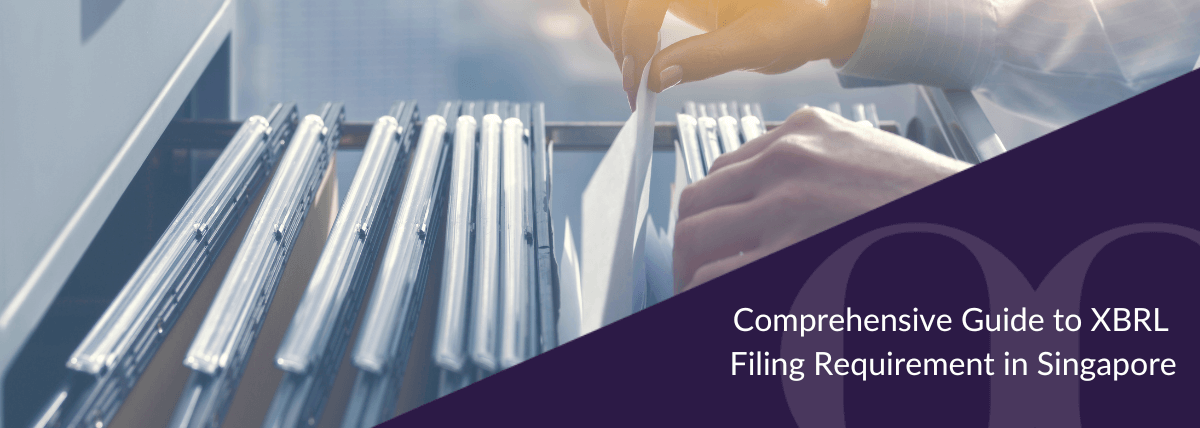
14 Jun 2024
Comprehensive Guide to XBRL Filing Requirement in Singapore
Explore the essentials of XBRL filing in Singapore, covering mandatory requirements, benefits, preparation steps, a …
READ MORE -
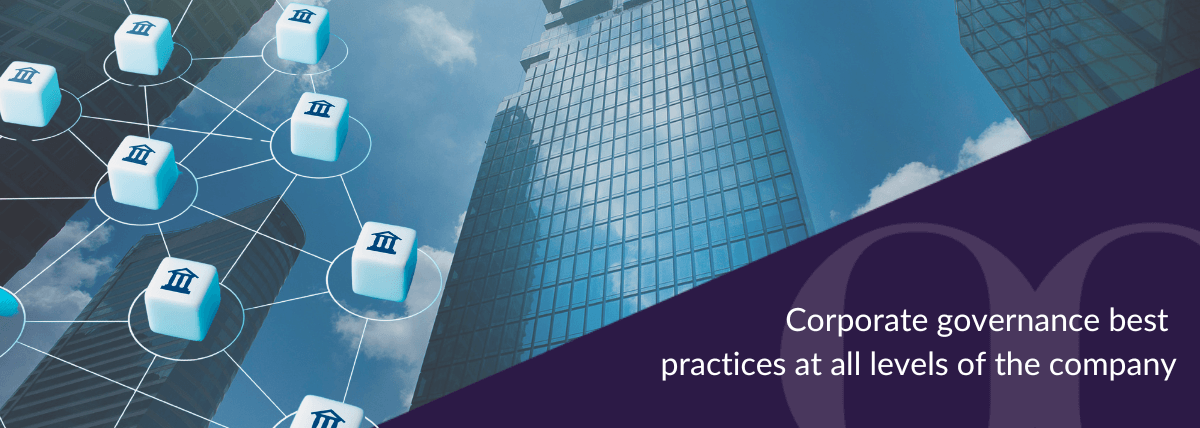
11 Jun 2024
Corporate governance best practices at all levels of the company
Corporate governance goes beyond compliance, shaping the fabric of an organisation. Discover the corporate governan …
READ MORE
Navigating the Forward Singapore Agenda: Insights into Budget 2024

Navigating the Forward Singapore Agenda: Insights into Budget 2024
In our commitment to keeping you abreast of pivotal developments, we are pleased to present our commentary of Singapore’s Budget 2024, unveiled by Deputy Prime Minister and Finance Minister Lawrence Wong on 16 February 2024, themed “Building Our Shared Future Together”.
Reflecting on the fiscal year 2023, Singapore exceeded revenue expectations, primarily driven by higher Corporate Income Tax collections.
Against this positive backdrop, Budget 2024 is strategically positioned to propel the Forward Singapore agenda. Our detailed Singapore Budget 2024 Commentary delves into the key tax measures affecting both businesses and individuals.
Key tax measures for businesses
- Singapore’s Implementation of Pillar Two of Base Erosion and Profit Shifting (BEPS) 2.0 initiative
- Introduction of the Refundable Investment Credit (RIC) Scheme
- Introduction of Corporate Income Tax (CIT) Rebate and CIT Rebate Cash Grant
- Enhancement of Tax Deduction for Renovation or Refurbishment (R&R) Expenditure
- Extension and Revision of Tax Incentive Schemes for Qualifying Funds
- Introduction of Alternative Basis of Tax for Three Maritime Sector Incentive (MSI) Sub-schemes
- Introduction of Additional Concessionary Tax Rate (CTR) Tiers
Key tax measures for individuals
- Introduction of Personal Income Tax Rebate
- Increasing Annual Income Threshold for Dependent-Related Relief
- Impending Lapse of Course Fees Relief (CFR)
- Removal of Tax Relief for CPF top up qualifying for Matched Retirement Saving Scheme (MRSS)
Other key tax measures
- Introduction of Overseas Emergency Humanitarian Assistance Tax Deduction Scheme (OHAS)
- Withdrawal of Income Tax Concession on Royalty Income
As we collectively navigate the Forward Singapore agenda, understanding these fiscal changes becomes paramount. Download our commentary now to stay informed and ahead.
Should you have any questions on how to maximise your tax position with this latest announcement, please email our tax team at [email protected].
Related Business Insights
-

08 Jul 2024
Your Guide to Corporate Tax Filing in Singapore
Learn to navigate corporate tax filing in Singapore effectively and ensure timely, compliant submissions with our c …
READ MORE -

14 Jun 2024
Comprehensive Guide to XBRL Filing Requirement in Singapore
Explore the essentials of XBRL filing in Singapore, covering mandatory requirements, benefits, preparation steps, a …
READ MORE -

11 Jun 2024
Corporate governance best practices at all levels of the company
Corporate governance goes beyond compliance, shaping the fabric of an organisation. Discover the corporate governan …
READ MORE
Navigating the recent tax changes in Singapore, Malaysia, Hong Kong, & China
Navigating the recent tax changes in Singapore, Malaysia, Hong Kong, & China
| |||||||
| |||||||
| |||||||
| |||||||
| |||||||
| |||||||
| |||||||
|
Beyond Compliance: How ESG Factors Impact Corporate Sustainability

Beyond Compliance: How ESG Factors Impact Corporate Sustainability
| ||||||||||||||||||||||||||||||||||||||
| ||||||||||||||||||||||||||||||||||||||
|
Malaysia’s Companies (Amendment) Bill 2024 and Accelerated Transfer Process from ACE to Main Market
Malaysia’s Companies (Amendment) Bill 2024 and Accelerated Transfer Process from ACE to Main Market
| |||
| |||
| |||
| |||
| |||
